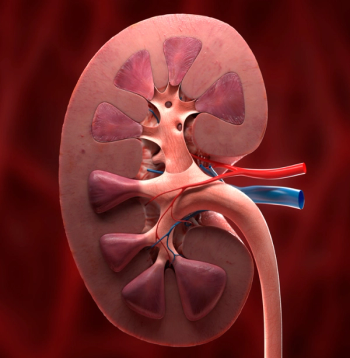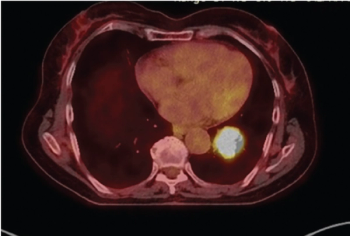
Data from a phase 1/2 trial support the potential clinical activity of DSP-5336 in patients with relapsed/refractory AML harboring a KMT2A rearrangement.

Your AI-Trained Oncology Knowledge Connection!


Data from a phase 1/2 trial support the potential clinical activity of DSP-5336 in patients with relapsed/refractory AML harboring a KMT2A rearrangement.

Laura W. Goff, MD, MSCI, MMHC, discusses the onslaught of treatment sequencing available in gastrointestinal cancer.

Phase 3 results show that treatment with vandetanib had no statistically significant improvement in PFS and more adverse effects than placebo.

Although no responses were observed in 11 patients receiving abemaciclib monotherapy, combination therapies with abemaciclib may offer clinical benefit.

The use of an ultrasensitive assay was able to detect HPV-16-positive SiHa cells at greater than 500 cells/mL for cervical cancer.

Approximately two-thirds of patients who received study treatment in NeoACTIVATE had no remaining tumors at the time of surgery.

Leaders from the lymphoma space highlight the importance of mentorship in establishing their careers and impart advice to women looking to advance theirs.

A panel of experts in multiple myeloma discussed strategies for sequencing novel bispecific antibodies and CAR T-cell therapies for patients with relapsed/refractory disease.

The results of the trial showed that at least 75% of patients with NSCLC harboring driver gene alterations may benefit from this treatment.

Experts in multiple myeloma discussed the evolving role of CAR T-cell therapy for patients with relapsed/refractory disease.

Findings show no difference in overall survival between various treatments for metastatic RCC previously managed with immunotherapy and TKIs.

“In LITESPARK-005, PFS and response rates favored belzutifan vs everolimus across [several patient subgroups, including] IMDC risk, number of prior lines [of therapy], and number of prior VEGF TKIs, specifically,” said Laurence Albiges, MD, PhD.

“These data support the development of fianlimab plus cemiplimab combination therapy for patients with metastatic ccRCC,” said Miso Kim, MD, PhD.

“This is currently the largest pooled safety dataset for a HIF-2α inhibitor we need to be familiar with,” lead study author Toni K. Choueiri, MD.

An epigenomic profiling approach may help pick up the entire tumor burden, thereby assisting with detecting sarcomatoid features in those with RCC.

Various immunotherapy/TKI regimens were observed to determine the impact on survival in patients with metastatic renal cell carcinoma.

Results from the phase 2b TACTI-003 trial show that eftilagimod alfa plus pembrolizumab achieved high objective response and disease control rates.

Michael Wang, MD, spoke about the recent liso-cel approval in mantle cell lymphoma and the TRANSCEND trial.

Collecting and analyzing patient data through an AI tool may help with more accurately predicting outcomes and personalizing treatment.

Data from CheckMate 214 show a steady improvement in overall survival with nivolumab/ipilimumab in patients with favorable-risk disease.

Investigators are assessing the use of IORT in patients with borderline resectable or unresectable pancreatic cancer as part of the phase 2 PACER trial.

Results from a retrospective cohort study display evidence of potential benefit from GLP-1RAs for the reduction of 13 obesity-associated cancers for those with type 2 diabetes.

Developers plan to discuss findings from the phase 2/3 GBM AGILE study with the FDA to determine a potential approval pathway for paxalisib.

Jagoda Misniakiewicz, PharmD, discussed implementing fruquintinib into clinical practice and how it's mechanism of action compares with others in the space.

Investigators evaluated the impact of low-molecular weight heparin after the first 60 days of treatment as well as treatment overall.

Upon acceptance, the FDA will review the resubmitted application between 2 and 6 months for remestemcel-L in pediatric patients.

Read about a woman with well-differentiated atypical carcinoid who experienced a 21% regression in primary tumor size after 12 months on neoadjuvant capecitabine and temozolomide.


Fertility and sexual health services appear to be offered to cancer survivors less often than other services at CoC-accredited practices.

Developers designed ADI-270 to potentially improve clinical responses in patients with renal cell carcinoma and other CD70-positive tumors.